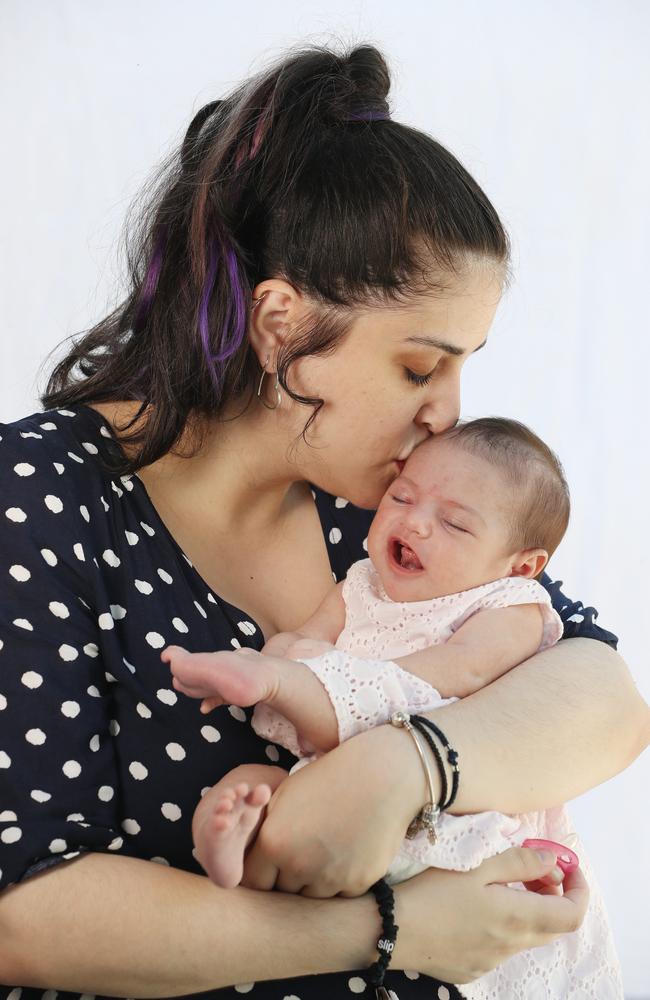Brisbane mum has ‘miracle baby’ after years of struggling with endometriosis
A Brisbane mum has shared her struggle with endometriosis and her path to pregnancy, warning other women not to dismiss severe period pain.
QLD News
Don't miss out on the headlines from QLD News. Followed categories will be added to My News.
After struggling to fall pregnant due to endometriosis, Brisbane mum Katie Callipolitis couldn’t believe her luck when it all finally fell into place.
“I was shocked. I just didn’t believe there were two lines on the stick. I had to call a friend to make sure it was real,” she said.
But Ms Callipolitis, 33, said her long-awaited pregnancy wouldn’t have been possible without having a third surgery to treat her endometriosis prior to falling pregnant.
“If I hadn’t gotten that surgery, it (the pregnancy) would never have happened. At that stage the IVF just wasn’t working so it was really my last chance,” she said.
As infertility is a common side effect of the painful disorder, Ms Callipolitis said her one-month old baby Evangeline had been a “miracle”.
“I would never have been so lucky if I hadn’t had surgical intervention,” she said.
In light of her happy ending, Ms Callipolitis said there was no a better time to urge women not to dismiss severe pain.
“The biggest message is that it’s not normal to be in debilitating pain because of your period. There’s a lot of stigma around it, mostly because it’s a woman’s disease,” she said.
Endometriosis happens when the lining of the uterus grows in other areas of the body, such as the abdominal cavity, forming blood-filled cysts and scar tissue.

Ms Callipolitis said getting a diagnosis can be difficult, with Mater Hospital Brisbane gynaecologist, Dr Tal Jacobson, being her third doctor before she was finally given the help she needed.
“When you get a diagnosis, it’s a relief because you know you’re not just being dramatic.”
With the month of March focusing on Endometriosis Awareness, Ms Callipolitis said it was time to change the perspective on the disorder and get rid of the social stigma.
“Don’t be shy. Talk about it. It’s time to talk about your period,” she said.
“You need to get a second, or third opinion. Just keep going until you get an answer.”
Dr Jacobson agreed with her, saying there had also been an increase of women being diagnosed with the disease in recent years with the disorder now impacting one in nine women in Australia.
“Traditionally, it could take up to 12 years to be diagnosed,” Dr Jacobson said.
“However, more doctors and gynaecologists are educated about the disease and recognising symptoms earlier. Women suffering with symptoms are also more likely to be aware of endometriosis and seek help sooner.”



